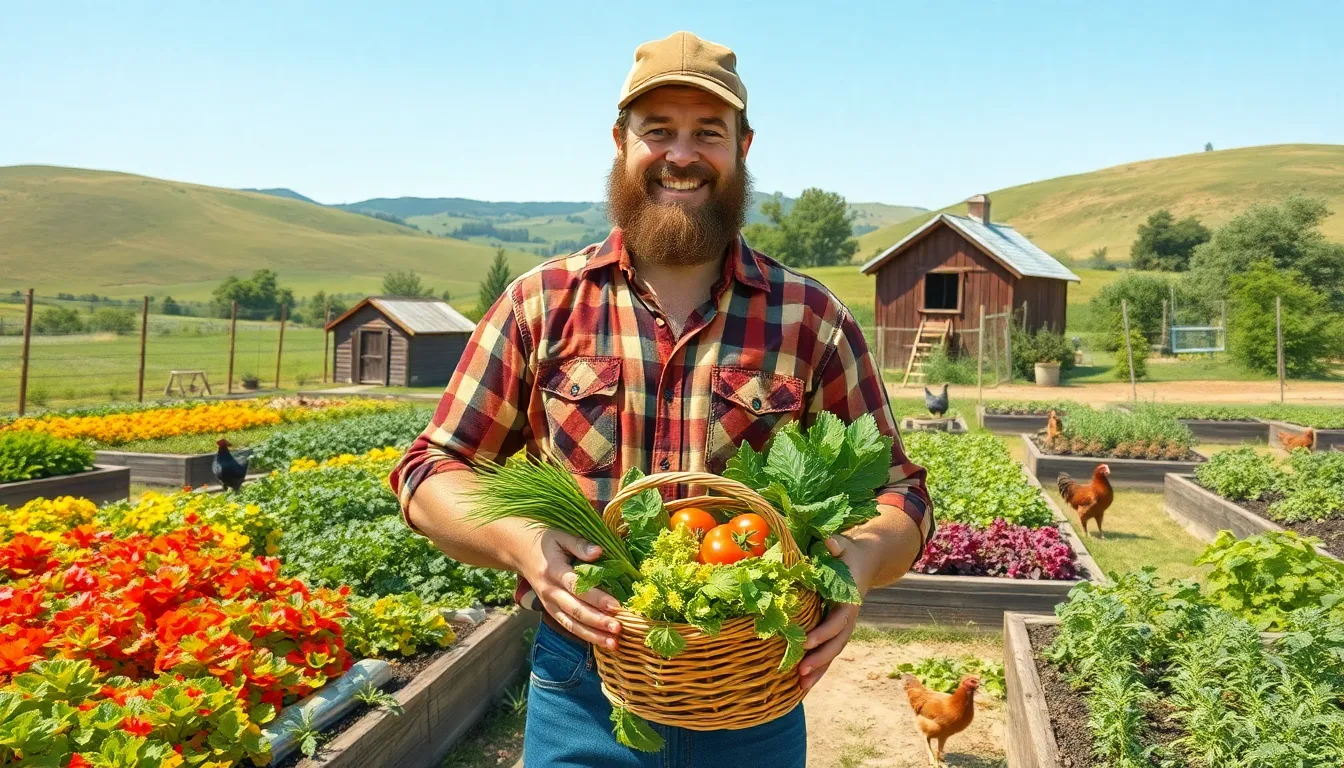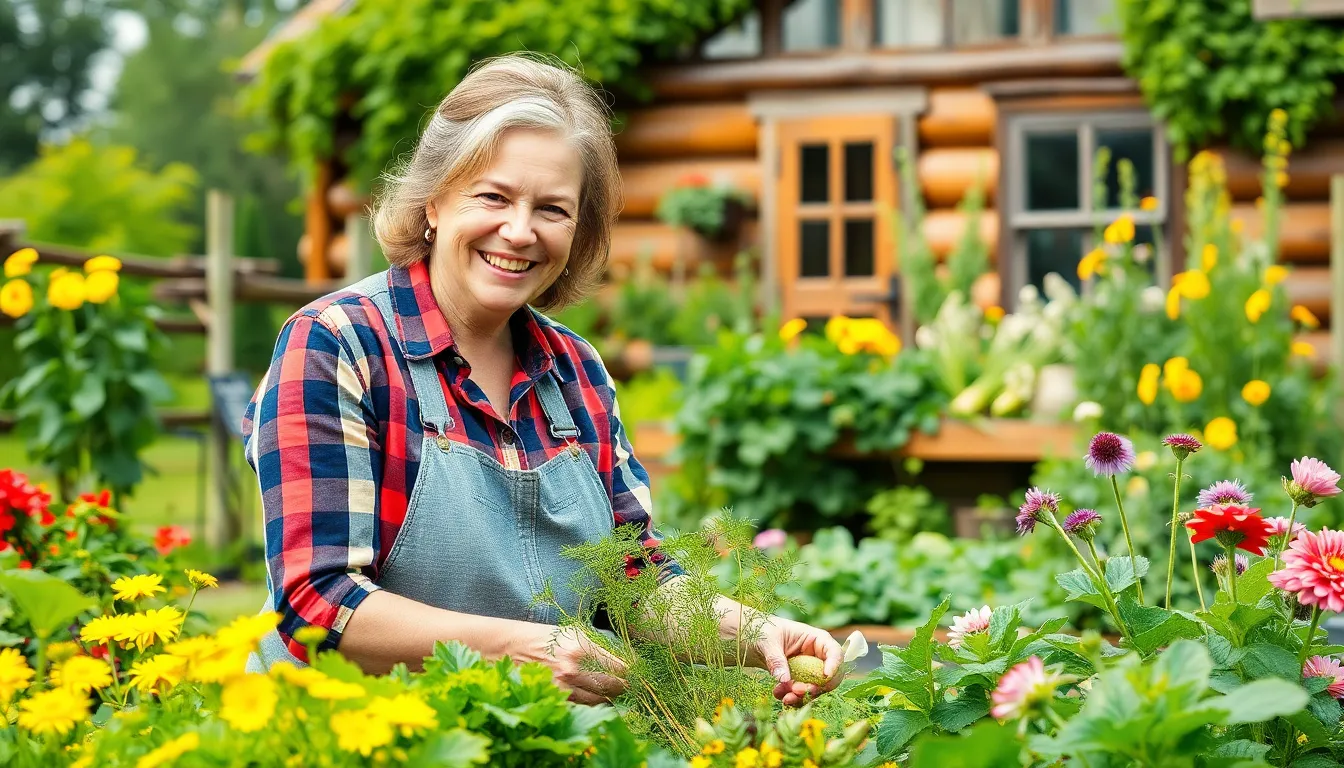The Best Fluffy Pancakes recipe you will fall in love with. Full of tips and tricks to help you make the best pancakes.

Homesteaders are the modern-day pioneers, trading in their city slicker shoes for a pair of well-worn boots. They embrace a lifestyle that’s all about self-sufficiency, sustainability, and a little bit of dirt under the fingernails. Imagine growing your own food, raising chickens for fresh eggs, and living off the land, all while dodging the occasional raccoon raid. Sounds like a dream, right?
What Are Homesteaders
Homesteading involves a commitment to self-sufficiency and a sustainable lifestyle. Those who engage in homesteading often cultivate their own gardens, ensuring access to fresh produce. Raising livestock, such as chickens or goats, complements their efforts by supplying fresh eggs and milk.
Community plays a vital role in the homesteading experience. Many homesteaders establish connections with local farmers to exchange goods and share knowledge. Workshops and local events enhance skills, covering topics like canning, gardening, and animal husbandry.
Modern technology supports these practices. Online resources and social media platforms enable homesteaders to access information and connect with like-minded individuals. From blogs to online forums, these tools provide insights and foster community engagement.
Challenges often arise in the homesteading journey. Weather patterns directly impact crops and livestock. Adapting to these changes requires creativity and flexibility, ensuring the homesteader can sustain their efforts year-round.
Economic factors also come into play. Operating a homestead can initially be costly, but many find long-term savings through reduced grocery bills. This financial independence becomes a significant motivator for those pursuing a homesteading lifestyle.
The homesteading movement fosters a deep appreciation for nature. Care for the environment manifests in practices like composting and permaculture. Embracing these methods contributes to healthier ecosystems and promotes biodiversity.
Overall, understanding homesteading reveals more than just a lifestyle choice. It embodies a philosophy rooted in resilience, community, and a profound respect for the land.
What Are Homesteaders?

Homesteaders embody a commitment to self-sufficiency and sustainability. Their lifestyle revolves around self-reliance, often embracing practices that allow them to thrive off the land.
Definition and Origins
Homesteading originated in the 19th century, linked to land grants by governments to encourage settlement in rural areas. The Homestead Act of 1862 in the United States provided land to individuals willing to cultivate it. This concept of land ownership fostered independence and resourcefulness. Over time, it transformed into a movement focused on sustainable practices and local living, prioritizing an ecological connection to the environment.
Modern-Day Homesteaders
Modern homesteaders focus on sustainable living through various practices. Growing organic food, raising livestock, and preserving seasonal produce represent core activities. They often share knowledge within local communities and participate in workshops on skills like canning and beekeeping. Utilizing modern technology, they access information and connect through online resources and social media platforms. Urban and rural settings both play host to homesteaders, reflecting a diverse approach to self-reliance.
Benefits of Homesteading
Homesteading offers numerous advantages, driving individuals toward a sustainable lifestyle while enhancing personal fulfillment.
Self-Sufficiency
Self-sufficiency stands as a cornerstone of homesteading. Growing food reduces dependency on grocery stores and commercial agriculture. Raising livestock for eggs, milk, and meat provides a reliable source of nutrition. Savings compound over time, translating to lower grocery bills and enhanced financial autonomy. Skills gained through homesteading, such as gardening and food preservation, foster confidence and community resilience. Many homesteaders engage in bartering and exchanging goods, creating networks that support local economies. Acquiring knowledge about sustainable practices promotes a balanced lifestyle, leading to healthier and more rewarding living.
Connection to Nature
Connection to nature deepens through homesteading. Cultivating a garden fosters an intimate relationship with the environment. Homesteaders observe seasonal changes and adapt to local ecosystems, cultivating awareness of natural cycles. The process of nurturing plants and animals reinforces appreciation for biodiversity and wildlife. Engagement with nature provides mental and emotional benefits, contributing to overall well-being. An increase in outdoor activities and time spent in nature leads to improved physical health. Through sustainable practices, homesteaders actively contribute to ecosystem health, promoting a vibrant planet for future generations.
Challenges Faced by Homesteaders
Homesteaders encounter various challenges on their journey towards self-sufficiency and sustainability. These hurdles can test their resolve and adaptability.
Time and Labor Commitment
Homesteading requires significant time and effort. Daily tasks such as planting, harvesting, and animal care demand consistent attention. Time management becomes crucial, as many homesteaders juggle these responsibilities alongside full-time jobs or family duties. Seasonal changes can also dictate tasks, shifting the focus from planting in spring to harvesting in fall. Continuous learning about sustainable practices often adds to their workload. Skills like canning and preserving food also require dedication to master. Ultimately, the passion for a self-sufficient lifestyle drives many to invest countless hours into their homesteads.
Financial Considerations
Financial challenges present another layer to homesteading. Initial investments in land, equipment, and livestock can be substantial. While homesteaders often see long-term savings in food costs, these savings don’t always materialize immediately. Unexpected expenses, such as veterinary care for animals or repairs for farming equipment, can arise at any moment. Many also face fluctuating market prices for goods and materials. Budgeting becomes essential for managing household expenses effectively. Over time, successful homesteaders often find ways to streamline costs and maximize their resourcefulness, enhancing their financial independence.
Homesteading Practices
Homesteading practices revolve around self-sufficiency and sustainability. These activities enable modern homesteaders to thrive while nurturing their land and communities.
Gardening and Farming
Creating a garden remains central to homesteading. Many homesteaders grow a variety of fruits and vegetables, ensuring fresh produce year-round. Crop rotation techniques enhance soil health, contributing to higher yields. Additionally, some raise livestock like chickens, goats, and cows for daily needs, including eggs, milk, and meat. Techniques such as companion planting improve pest control and biodiversity. These practices not only foster independence but also allow homesteaders to produce organic food, free from harmful chemicals.
Sustainable Living
Commitment to sustainable living remains a priority for homesteaders. Utilizing renewable resources helps minimize waste and conserve energy. Practices such as composting enrich soil while reducing landfill contributions. Harvesting rainwater for irrigation addresses water scarcity and promotes responsible usage. Incorporating permaculture principles allows for a harmonious relationship with the environment. Many homesteaders engage in bartering, creating local economies and reducing reliance on commercial markets. This lifestyle nurtures ecological awareness while fostering deeper connections within their communities.
Conclusion
Homesteading represents a lifestyle choice that embraces self-sufficiency and sustainability. Modern homesteaders cultivate a deep connection with their land while fostering community ties and sharing valuable knowledge. They navigate challenges with resilience and creativity, transforming their living spaces into productive ecosystems.
This commitment to sustainable practices not only enhances their quality of life but also contributes positively to the environment. By prioritizing local resources and reducing dependency on commercial markets, homesteaders play a vital role in promoting biodiversity and ecological health. As this movement continues to grow, it inspires others to explore the rewarding journey of self-reliance and environmental stewardship.
